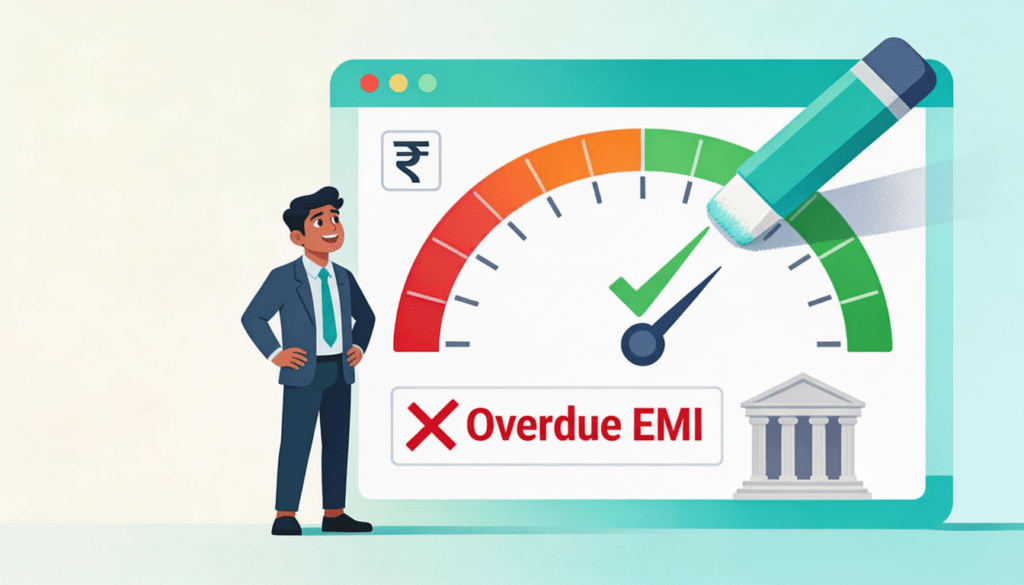
In a significant ruling that has brought relief to thousands of pensioners across the country, the Kerala High Court recently intervened to prevent the Employees’ Provident Fund Organisation (EPFO) from reducing the higher pension benefits of 41 pensioners. This decision has far-reaching implications for employees who have been fighting for their rightful pension benefits under the Employees’ Pension Scheme (EPS). The judgment not only highlights the importance of safeguarding the rights of pensioners but also underscores the need for transparency and fairness in the administration of pension schemes.
“The implications of the Kerala High Court’s interim order preventing the EPFO from reducing the higher PF pension of 41 petitioners. Learn about the Employees’ Pension Scheme (EPS) 1995, the pro-rata calculation method, and the potential impact on future pension policies. Stay informed with expert opinions, legal insights, and detailed statistics on this significant ruling affecting pensioners across India.”
Background: The Employees’ Pension Scheme (EPS) and the Controversy
The Employees’ Pension Scheme (EPS) was introduced in 1995 as part of the Employees’ Provident Funds and Miscellaneous Provisions Act, 1952. The scheme was designed to provide a monthly pension to employees after their retirement, ensuring financial security in their old age. Under the EPS, both employees and employers contribute a portion of the employee’s salary to the pension fund.
However, over the years, the EPS has been mired in controversy, particularly regarding the calculation of pension benefits. One of the key issues has been the cap on the salary used for calculating pension contributions. Until 2014, the EPS contributions were calculated based on a maximum salary limit of Rs. 6,500 per month, even if the employee’s actual salary was much higher. This meant that employees earning more than Rs. 6,500 per month were not able to contribute proportionally to their pension fund, resulting in lower pension benefits upon retirement.
In 2014, the EPFO introduced an amendment to the EPS, allowing employees to contribute 8.33% of their actual salary (subject to a maximum of Rs. 15,000 per month) towards the pension fund. This amendment was seen as a positive step towards ensuring higher pension benefits for employees. However, the implementation of this amendment has been fraught with challenges, leading to numerous legal battles.
The Case of the 41 Pensioners
The case that recently came before the Kerala High Court involved 41 pensioners who had been receiving higher pension benefits based on their actual salaries, as per the 2014 amendment. These pensioners had opted for the higher pension scheme and had been contributing accordingly. However, the EPFO sought to reduce their pension benefits, arguing that the higher pension payments were not in line with the rules and regulations of the EPS.
The pensioners challenged the EPFO’s decision, arguing that they had fulfilled all the necessary conditions for receiving higher pension benefits and that the EPFO’s attempt to reduce their pensions was arbitrary and unjust. They contended that the EPFO’s actions violated their fundamental rights and the principles of natural justice.
Legal Arguments Presented
The petitioners (the 41 pensioners) presented several key arguments in their case:
- Legitimate Expectation: The pensioners argued that they had a legitimate expectation of receiving higher pension benefits based on their contributions and the EPFO’s own rules. They had relied on the EPFO’s assurances and had made financial decisions based on the expectation of receiving a higher pension.
- Violation of Fundamental Rights: The petitioners contended that the EPFO’s decision to reduce their pension benefits violated their fundamental rights under Article 14 (right to equality) and Article 21 (right to life and personal liberty) of the Indian Constitution. They argued that the reduction in pension benefits would lead to financial hardship and insecurity in their old age.
- Arbitrary and Unjust Action: The pensioners claimed that the EPFO’s decision was arbitrary and lacked a rational basis. They pointed out that the EPFO had not provided any valid reasons for reducing their pension benefits and that the decision was not in line with the principles of natural justice.
- Non-Application of Mind: The petitioners argued that the EPFO had failed to apply its mind properly while making the decision to reduce their pension benefits. They claimed that the EPFO had not considered the individual circumstances of each pensioner and had acted in a mechanical and bureaucratic manner.
On the other hand, the EPFO defended its decision, arguing that the higher pension payments were not in accordance with the rules and regulations of the EPS. The EPFO contended that the pensioners had not fulfilled the necessary conditions for receiving higher pension benefits and that the reduction in pension payments was necessary to maintain the financial sustainability of the pension fund.
The Kerala High Court’s Decision
After hearing the arguments from both sides, the Kerala High Court ruled in favor of the 41 pensioners, holding that the EPFO’s decision to reduce their pension benefits was arbitrary and unjust. The court emphasized the importance of protecting the rights of pensioners and ensuring that they receive the benefits they are entitled to.
Key points from the court’s decision include:
- Legitimate Expectation Upheld: The court held that the pensioners had a legitimate expectation of receiving higher pension benefits based on their contributions and the EPFO’s own rules. The court noted that the pensioners had relied on the EPFO’s assurances and had made financial decisions based on the expectation of receiving a higher pension.
- Violation of Fundamental Rights: The court found that the EPFO’s decision to reduce the pension benefits violated the pensioners’ fundamental rights under Article 14 and Article 21 of the Indian Constitution. The court emphasized that the reduction in pension benefits would lead to financial hardship and insecurity in the pensioners’ old age.
- Arbitrary and Unjust Action: The court held that the EPFO’s decision was arbitrary and lacked a rational basis. The court noted that the EPFO had not provided any valid reasons for reducing the pension benefits and that the decision was not in line with the principles of natural justice.
- Non-Application of Mind: The court found that the EPFO had failed to apply its mind properly while making the decision to reduce the pension benefits. The court noted that the EPFO had not considered the individual circumstances of each pensioner and had acted in a mechanical and bureaucratic manner.
Based on these findings, the Kerala High Court quashed the EPFO’s decision to reduce the pension benefits of the 41 pensioners and directed the EPFO to continue paying the higher pension benefits as per the 2014 amendment.
Implications of the Ruling
The Kerala High Court’s decision has significant implications for employees and pensioners across India. Some of the key implications include:
- Protection of Pensioners’ Rights: The ruling reinforces the importance of protecting the rights of pensioners and ensuring that they receive the benefits they are entitled to. The court’s decision sends a strong message to the EPFO and other government agencies that arbitrary and unjust actions against pensioners will not be tolerated.
- Legitimate Expectation Doctrine: The ruling upholds the doctrine of legitimate expectation, which holds that individuals have a right to expect that government agencies will act in accordance with their own rules and assurances. This doctrine is particularly important in cases involving pension benefits, where individuals rely on government assurances to make important financial decisions.
- Financial Security for Pensioners: The ruling provides much-needed financial security for pensioners, many of whom rely on their pension benefits as their primary source of income in old age. By preventing the EPFO from reducing pension benefits, the court has ensured that pensioners can continue to live with dignity and financial stability.
- Precedent for Future Cases: The ruling sets an important precedent for future cases involving pension benefits and other similar issues. The court’s decision provides a clear legal framework for addressing disputes related to pension benefits and ensures that government agencies are held accountable for their actions.
- Call for Reform: The ruling highlights the need for reform in the administration of pension schemes, particularly the EPS. The court’s decision underscores the importance of transparency, fairness, and accountability in the administration of pension schemes and calls for a review of the rules and regulations governing pension benefits.
The Kerala High Court’s decision to stop the EPFO from reducing the higher pension benefits of 41 pensioners is a landmark ruling that has brought relief to thousands of pensioners across the country. The ruling reinforces the importance of protecting the rights of pensioners and ensuring that they receive the benefits they are entitled to. It also underscores the need for transparency, fairness, and accountability in the administration of pension schemes.
As the country continues to grapple with the challenges of an aging population and the need for financial security in old age, the Kerala High Court’s decision serves as a timely reminder of the importance of safeguarding the rights of pensioners and ensuring that they can live with dignity and financial stability in their old age.
-
Why Is the Stock Market Falling Today? Nifty Below 25,500 and 5% Crash in IT Explained
Nifty crashed 1% and IT stocks collapsed 5% today — but the real reason will shock you. An
-
Section 195 TDS on NRI Property: How Budget 2026 Just Made It Simpler for Every Indian Homebuyer
Buying property from an NRI seller once meant becoming a tax authority overnight. Budget 2026 just eliminated the
-
Meta and AMD Sign a Multi-Year 6GW AI Infrastructure Deal Worth Over $100 Billion — Breaking Down Every Detail
Meta just handed AMD a $100 billion lifeline — and walked away from Nvidia’s monopoly. Six gigawatts. 160





























